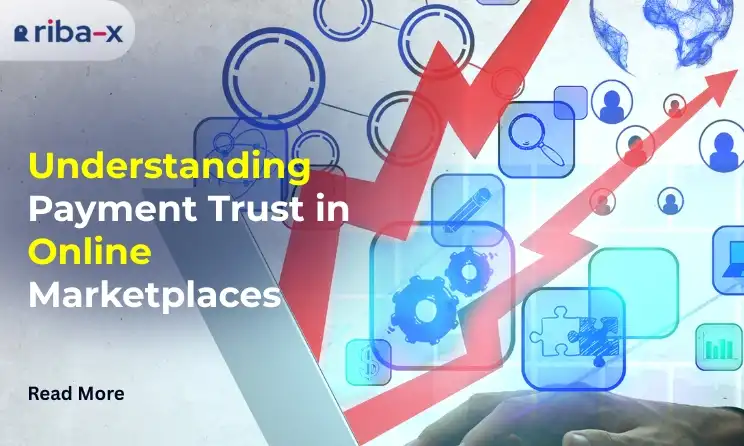Nigeria's digital landscape is experiencing a remarkable transformation. The online market in Nigeria has evolved from a tentative experiment to a powerful engine of economic development, reshaping how millions of Nigerians buy, sell, and conduct business.
The Rise of E-Commerce in Nigeria
Over the past decade, Nigeria has witnessed an explosive growth in internet penetration and smartphone adoption. This digital revolution has created fertile ground for the online marketplace in Nigeria to flourish. What started with a handful of pioneering platforms has now expanded into a thriving ecosystem of e-commerce businesses, digital payment solutions, and logistics networks.
The numbers tell a compelling story. With over 100 million internet users and a young, tech-savvy population, Nigeria has become Africa's largest e-commerce market. This growth isn't just about convenience—it's fundamentally changing the country's economic landscape.
Key Ways Online Markets Are Boosting Economic Growth
Creating Employment Opportunities
The e-commerce in Nigeria sector has become a significant job creator:
- Direct employment: Online platforms employ thousands of people in roles ranging from customer service representatives to software developers and warehouse managers.
- Logistics and delivery: The need to move products from sellers to buyers has created thousands of jobs for delivery riders, drivers, and logistics coordinators across urban and rural areas.
- Merchant opportunities: Small business owners and entrepreneurs now have platforms to reach customers nationwide without needing physical storefronts, reducing overhead costs and entry barriers.
Supporting services: The ecosystem has spawned jobs in digital marketing, photography, content creation, and payment processing.
Empowering Small and Medium Enterprises (SMEs)
The online marketplace in Nigeria has democratized access to customers. A tailor in Aba can now sell to customers in Lagos, Abuja, or Port Harcourt without leaving their workshop. Small businesses that previously struggled with limited foot traffic can now:
- Reach customers across all 36 states
- Compete with larger businesses on a relatively equal footing
- Test products and gather customer feedback quickly
- Scale operations based on demand without massive upfront investments
This accessibility has been particularly transformative for women entrepreneurs and young business owners who might have faced traditional barriers to market entry.
Boosting Financial Inclusion
E-commerce in Nigeria has accelerated the adoption of digital payment systems. As more people shop online, they're also learning to use mobile money, digital wallets, and online banking. This shift toward digital transactions:
- Reduces dependence on cash, improving security and transparency
- Creates digital financial footprints that can help people access credit
- Brings previously unbanked populations into the formal financial system
- Facilitates faster, more efficient business transactions
Stimulating Related Industries
The growth of the online market in Nigeria has created ripple effects throughout the economy:
- Logistics infrastructure: Increased demand has prompted investments in warehousing, transportation, and last-mile delivery solutions.
- Technology sector: The need for robust e-commerce platforms has fueled growth in software development, cybersecurity, and IT services.
- Digital marketing: Businesses need to promote their online presence, creating opportunities for marketers, content creators, and social media specialists.
- Packaging industry: The surge in product shipments has boosted demand for packaging materials and services.
Challenges and Opportunities
Despite impressive growth, the online marketplace in Nigeria still faces hurdles. Infrastructure gaps, logistics challenges in remote areas, and trust issues around online payments require continued attention. However, these challenges also represent opportunities for innovation and further economic growth.
Forward-thinking platforms are addressing these concerns by:
- Partnering with multiple logistics providers to ensure wider coverage
- Offering cash-on-delivery options to build trust
- Investing in customer education about online shopping safety
- Developing solutions tailored to local needs and preferences
The Road Ahead
The future of e-commerce in Nigeria looks remarkably bright. As internet penetration deepens, particularly in rural areas, and as digital literacy improves, the market will continue expanding. Government initiatives supporting digital transformation and the growing investor interest in Nigerian tech startups suggest that the best days for the online market are still ahead.
The COVID-19 pandemic accelerated digital adoption by years, forcing even skeptical consumers and traditional businesses to embrace online platforms. This behavioral shift is likely permanent, creating sustained momentum for the sector.
Conclusion
The online marketplace in Nigeria has emerged as a critical driver of economic growth, creating jobs, empowering entrepreneurs, and modernizing the country's commercial infrastructure. From enabling small businesses to reach national markets to fostering financial inclusion, the impact extends far beyond simple buying and selling.
As Nigeria continues its digital transformation journey, platforms like Riba-X are contributing to this evolving ecosystem, helping businesses and consumers connect in innovative ways. The online market in Nigeria represents not just a commercial opportunity but a fundamental reimagining of how Africa's most populous nation conducts business, creates wealth, and builds its economic future.
Frequently Asked Questions (FAQs)
1. What is the current size of the online market in Nigeria?
Nigeria's e-commerce market is valued at several billion dollars and continues growing rapidly, with projections suggesting it will more than double in the next five years. The country accounts for the largest share of e-commerce activity in Africa.
2. How has e-commerce in Nigeria impacted traditional retail businesses?
Rather than replacing traditional retail, e-commerce has created a hybrid model. Many brick-and-mortar businesses now maintain online presences, while some online-only retailers have opened physical showrooms. This integration benefits consumers with more shopping options.
3. What are the most popular product categories in Nigeria's online marketplace?
Electronics, fashion and apparel, beauty products, and groceries are among the most popular categories. However, the range continues expanding to include everything from automobiles to real estate.
4. Is it safe to shop on online marketplaces in Nigeria?
Most established platforms implement security measures including payment encryption, buyer protection policies, and verified seller programs. Consumers should stick to reputable platforms, read reviews, and use secure payment methods.
5. How can small businesses start selling on online marketplaces in Nigeria?
Small businesses can register as sellers on established platforms, create product listings with clear photos and descriptions, set competitive prices, and provide excellent customer service. Many platforms offer free registration with commission-based payment models, making it accessible for businesses of all sizes.







